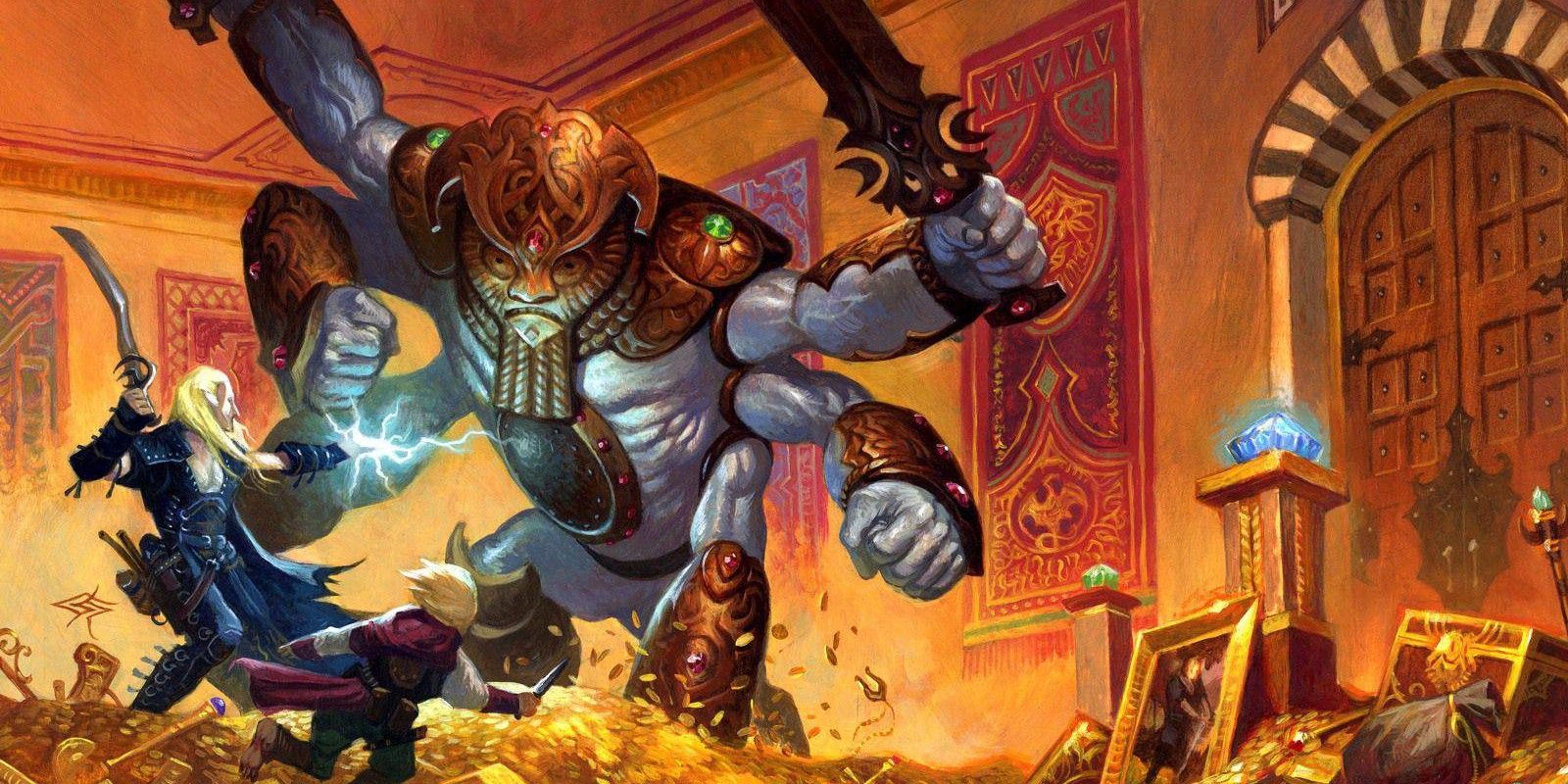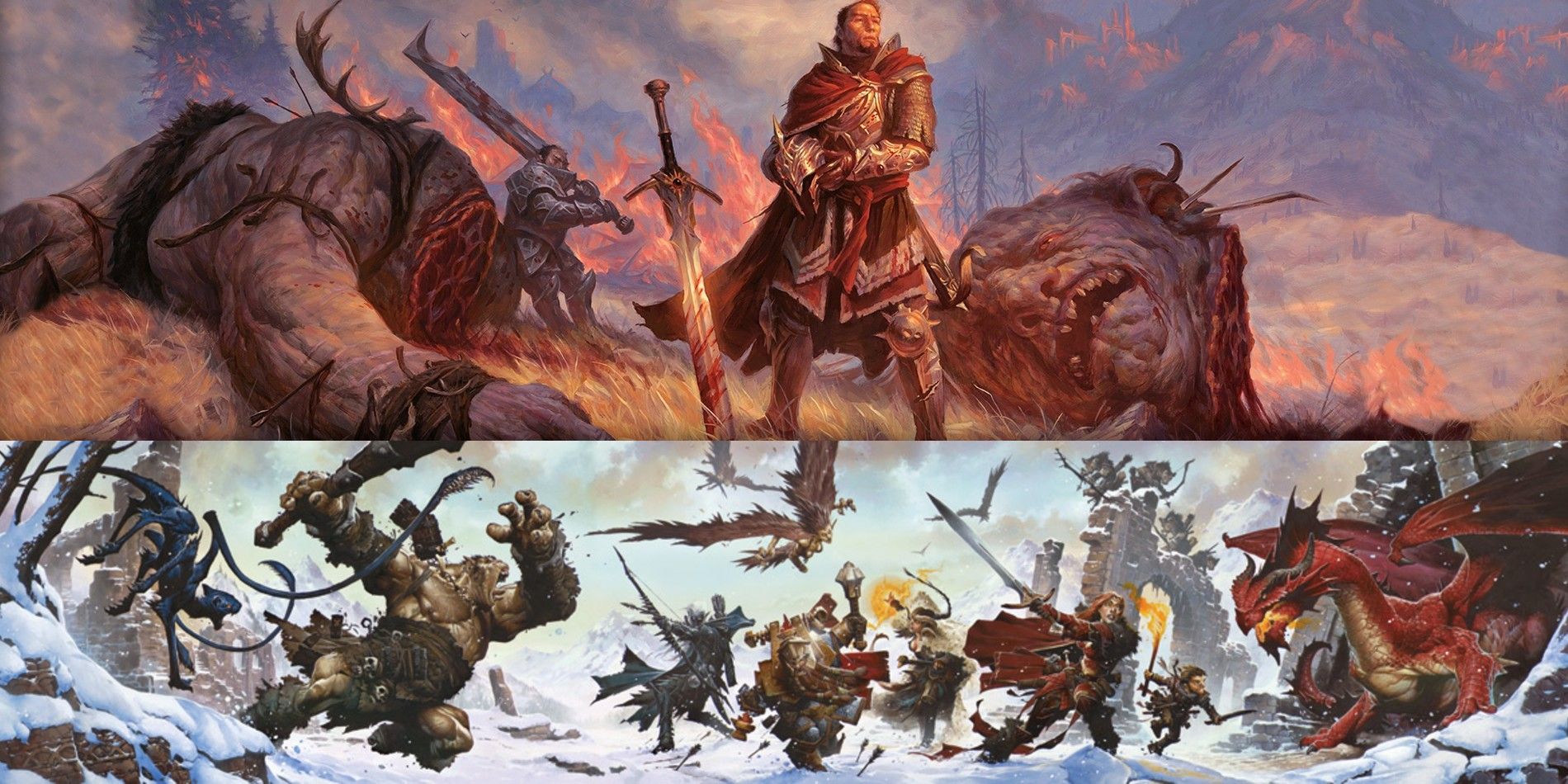Dungeons & Dragons is designed around the idea of a campaign, a long-running game made up of numerous gaming sessions over the course of months (or years) where the characters grow and often an epic story unfolds. One-shot games have great value in D&D as well, but they require a different approach to planning and structure. A single-session game might allow a new player to take the role of Dungeon Master, offering the group’s usual DM an opportunity to play, while giving a long-running Dungeons & Dragons campaign some breathing room. They might be ideal for a group that does not play tabletop RPGs regularly, a substitute for a session where the DM is unavailable to run their campaign, or a good way to introduce new players to D&D before they commit to playing in a long-term game.
The most important thing for a DM to keep in mind when planning a one-shot D&D game is scope, as, realistically, there is only so much ground they can cover in a single session. Some one-shots might be better structured as mini-campaigns extending over the course of two to four gaming sessions. The one-shot D&D adventure modules used in Wizards of the Coast’s official organized play program provide a good idea of what can be accomplished in a one session, as these are designed to be completed within three to five hours. They begin with the assumption that the players are all adventurers or mercenaries who have agreed to perform a task for a specific patron, provide some brief context, and by the session’s end, the contract has been fulfilled. Modules of this type usually including two to three battle encounters, at most, with skill-based exploration, investigation, or social elements in between.
This is a fine general structure for a one-shot D&D session, but DMs should feel free to take advantage of the format to tell more unique stories better suited to the “one and done” format than a long-term campaign. Movies can provide excellent inspiration for one-shot D&D games, as a two-hour movie can easily translate into a four-to-five hour gaming session. Classic film tropes work well, like a deceased, wealthy, Non-Player Character leaving a will which requires that the Player Characters to spend a night in their haunted mansion to lay claim to a share of the inheritance.
D&D One-Shots Require A Different Scope Than Campaigns
Unlike a long-running campaign, where PCs typically need to work together to overcome challenges, one-shots can be structured as more competitive games. Some tweaks to the premise of the Baldur’s Gate video games could restructure it into something more akin to Battle Royale or The Hunger Games. Cultists of the slain God of Murder could gather all of those who carry the dead god’s divine blood on an island or other isolated location and force them to battle to the death to determine who inherits the power of the fallen deity.
As time is limited for a one-shot D&D game, DMs will usually need to work with players in advance to ensure that have appropriate characters for the session, both mechanically and in terms of working with the story, as there is little time to waste trying to give a PC reason to participate in a plot their character has no stake in. DMs may want to offer the option of pre-generated characters, especially if some of the one-shot players are unfamiliar with the rules of Dungeons & Dragons.
Many one-shot concepts could inspire follow up single session sequel games. A D&D heist game, burglarizing a casino housed in one of the Eberron setting’s airships, could be a stand-alone experience, or the DM could revisit it later with a new higher-stakes job, robbing a valuable book of prophecies from the dragons of Argonnessen, or stealing a Karrnath lich's phylactery in order to blackmail them. One-shots allow for stories that might not suit an ongoing D&D campaign, and the DM can freely offer a challenge, as a one-shot ending in the party’s death makes for an interesting experience without derailing a campaign. Becoming skilled at running one-shots is valuable experience for any Dungeons & Dragons Dungeon Master, as they can improve pacing and structure, ensuring that any games they run flow briskly and maintain player excitement, and making every session feel meaningful.


